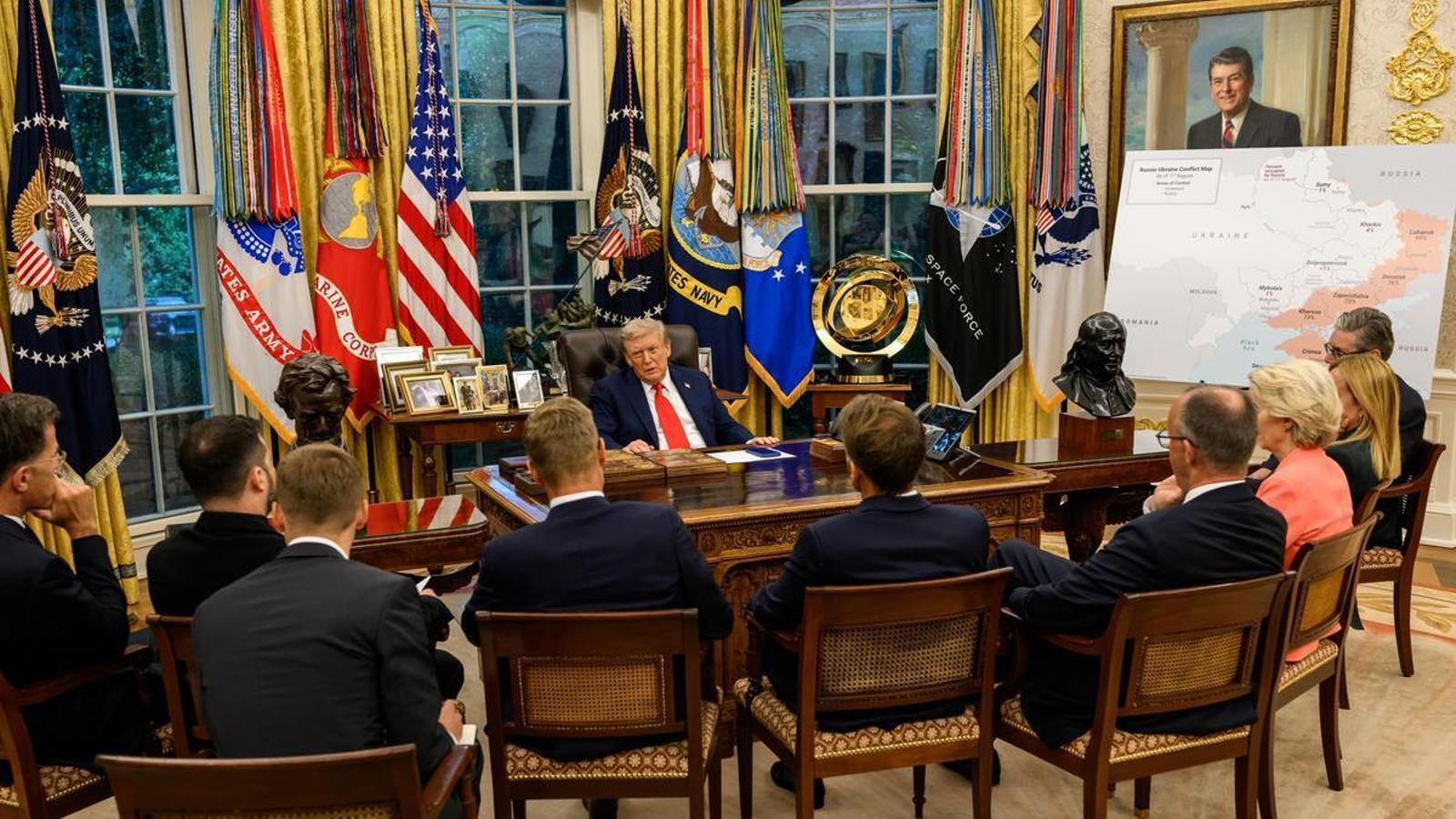

The fledgling peace talks in Ukraine, promoted and led by US President Donald Trump, are revealing what has long been evident. Neither Russia, the aggressor country, has achieved its initial objective, which was none other than to reach Kiev and establish a puppet government, nor Ukraine, the invaded country, has managed to repel the enemy, which has consolidated its positions on the eastern border (Russia controls 19% of Ukrainian territory). If peace more or less recognizes this territorial situation, while, as is currently on the table, including a solid security guarantee for Ukraine that makes a new Russian attack unfeasible but does not entail Kiev's entry into NATO, neither of the two warring sides will have emerged victorious from the war.
If anyone will have benefited, it will be the mediator Trump, who will have extracted from his traditional Atlanticist European partners a much stronger, more real, and more concrete military commitment, both in terms of budget (including spending on the US arms industry) and on the ground, while also building a relationship of trust with Putin, whom he will have built a relationship of trust with Putin. He will also get a nice cut in terms of rare earths from Ukraine. Of course: Trump always charges for everything. And, in the process, in his uninhibited boastful style, he will be able to continue insisting that he deserves the Nobel Peace Prize.
Trump's mediation strategy has consisted, from the outset, in failing to distinguish between the aggressor and the attacked. In fact, he has shamelessly flirted with Russian leader Vladimir Putin, blamed Ukrainian President Volodymyr Zelensky, and scorned European leaders. Trump has shown no shame in rehabilitating Putin in Alaska and renouncing a ceasefire as a logical precondition for talks. Once this was done, he allowed the European high plains to pay him homage in the Oval Office, listening wholeheartedly and with discipline, a perfectly illustrative image of the new Trumpist diplomacy: everything must go through him, everything revolves around his interests and whims, he has the first and the last word.
Be that as it may, if real progress is made, peace in Ukraine will now be welcome. First of all, to put an end to so much death and so much pain during three and a half years of war. Second, if it serves to convince Putin that he will not be allowed any more European adventures. And third, if it also serves to get Europe's act together on defense and foreign policy. What today may largely appear to be a humiliation of the Old Continent before the Trumpist United States and a concession of Ukraine to Putinist Russia—by the way, guarantees will have to be established for the Ukrainian population if this happens in Russia—could be a first step toward European sovereign empowerment in self-defense. Hopefully.
But all this remains to be seen. First, it will be necessary for Putin to effectively accept Zelensky as an interlocutor—he has repeatedly called him a Nazi and has sought to remove him at any cost—for shells to stop falling on Ukrainian cities, and for agreements to be finalized on the map and on the ground. We are still far from everything.
